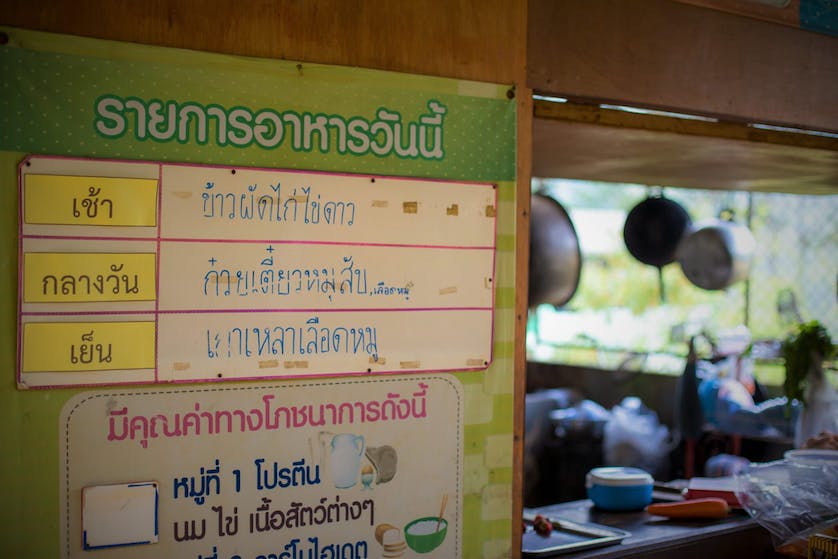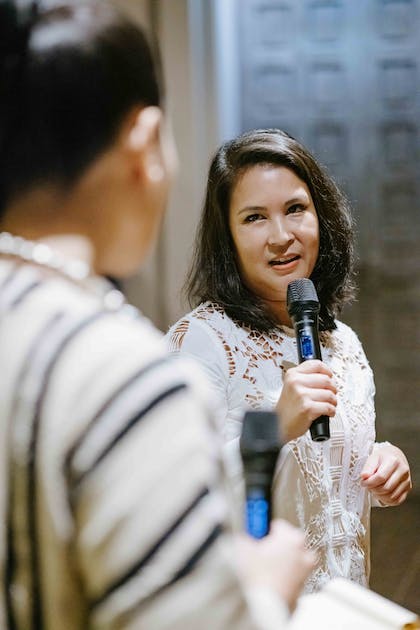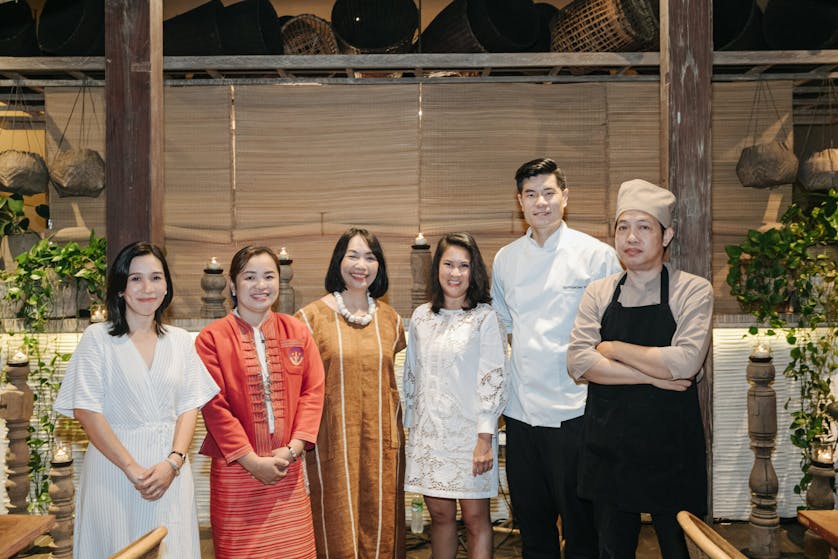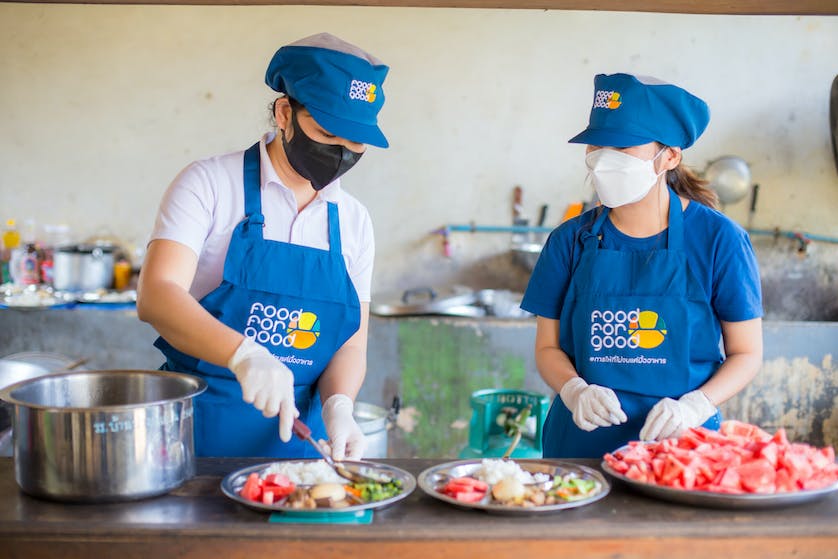อ่านบทความภาษาไทยคลิกที่นี่
“Childhood nutrition may not be front line news on the same level as fire or flood, but it is a very serious concern for society. The sense of urgency is not strong due to the fact that it takes many years for results to be manifested,” according to a statement Yuvabadhana Foundation’s Food for Good project.

The Food for Good project, now in its 9th year, was founded with concern for childhood nutrition in mind. With good nutrition, the project explains, a strong and healthy life can be had with results affecting not just the mind but also the body.
There are numerous charities, foundations and projects across Thailand helping to feed our less fortunate children. However, we are still finding that the number of children in this country that are not meeting nutritional goals are on the rise year on year. Some children are lacking in certain nutrients, others are either too thin or overweight. We are seeing children with health problems which can be directly attributed to poor nutrition. It is not that we don’t have caregivers or a budget, but the problem lies in that we lack poor management of resources and good nutritional information.’


“Teach them to fish; don’t give them fish,” being the main philosophy of Food for Good, which works with three other foundations to disseminate nutritional knowledge to schools across Thailand.

It all began nine years ago when owner of Premier Hotel Group, which includes Chiang Mai’s own Ray Heritage and Tamarind Village, Thipchaya Pongsatorn first launched the Food for Good Project.
“I have worked in the hospitality sector for a long time and have an expertise in service, food and beverages, so I thought to bring together all of the knowledge and expertise to effect sustainable change. I had to look inwards to see what I had to offer to achieve this goal,” said Thipchaya. “So I decided to use our knowledge to help children across Thailand have better access to good food and nutrition which will lead to better overall health and mind.”


“In the first year, I didn’t see this project being more than a one off. I brought in all of my partner businesses who had knowledge in this field and together we offered help and support to three foundations. Following the project’s success, we decided to go deeper and see what more we could do.”
“As children grow up, they require different types of nutrition, and it was our aim to support this access to good nutritional knowledge to children of all ages, focusing on four ‘Goods’.
Good Food: We reached out to all of our contacts and partners to raise funds to donate food to the most remote and destitute schools in Thailand.
Good Knowledge: We created programmes to raise awareness and give knowledge about good diet and nutrition, teaching school teachers, cooks and caterers how to feed children, expending our outreach to parents as well.
Good Farm: The farm is the source for most food, especially in rural areas. To that end we have supported the creation of community farms across Thailand, creating models of sustainability and nutrition.
Good Health: By closely monitoring the health of the children under our care, and working closely with public health officials, parents and teachers, we have seen results of improved nutrition and health across the board.”


Food for Good is no flash in the pan, it is a long term commitment to the future health of our nation. It is about building capacity, sharing knowledge, implementing best practices and understanding that children need to eat right to grow up right.
Today, Food for Good works with 125 schools in 36 provinces, all of which now have the tools, the means and the structure to implement long term and sustainable nutritional goals. A total of 368 teachers have been trained and 23,790 children now live with good health and good diets while 4,527,996 children have received help or support in some way or another from the project.


The money raised is used in a myriad of ways, from profound to petty; creating seasonal menus, managing community garden resources, training kitchen staff on benefits of nutrition, purchasing new scales which actually work, teaching how to cook well where there is no electricity, access to local markets, purchasing management and a multitude of issues which are location-specific.
“We have found that the main challenge isn’t monetary, its knowledge,” expanded Thipchaya, who attributes various challenges to lack of education. “People don’t know how to plan meals, how to effectively turn their vegetable gardens into healthy food, how to measure success and health or how to manage their diets. We offer knowledge, we facilitate and we offer support. We help build bridges between schools and communities, between parents and public health offices. We hope to lay the groundwork for long term change.”
Food for Good works with each school for one full intense year only. During that year much is asked of the school. They must study, they must reach out to communities, they must come up with a plan, they must study their resources and manage it and they must show that they will follow up and measure the health of the children.


“Here in the North we have found that on the most part, communities are very strong, but they are also lacking in resources. In the North East, they have more money, but families and communities are not as strong as up North. The South and Central parts have their own challenges, all of which we must overcome.”
“This is a team effort. We need schools, parents, village elders, local authorities, the education sector, hospitals, even monks to step in and work together. Partner businesses are also crucial and we now have Krung Sri Bank helping us out with temple nutrition programmes.
Food For Good held a charity dinner at Raya Heritage in October to raise funds for the project, and will be organising many more fundraisers to come if you are interested.
FOOD FOR GOOD
Tel : 02 301 1149
www.foodforgood.or.th
email : info@foodforgood.or.th
https://web.facebook.com/foodforgoodth
https://www.instagram.com/foodforgoodth
https://www.youtube.com/@foodforgood-thailand1113/videos
